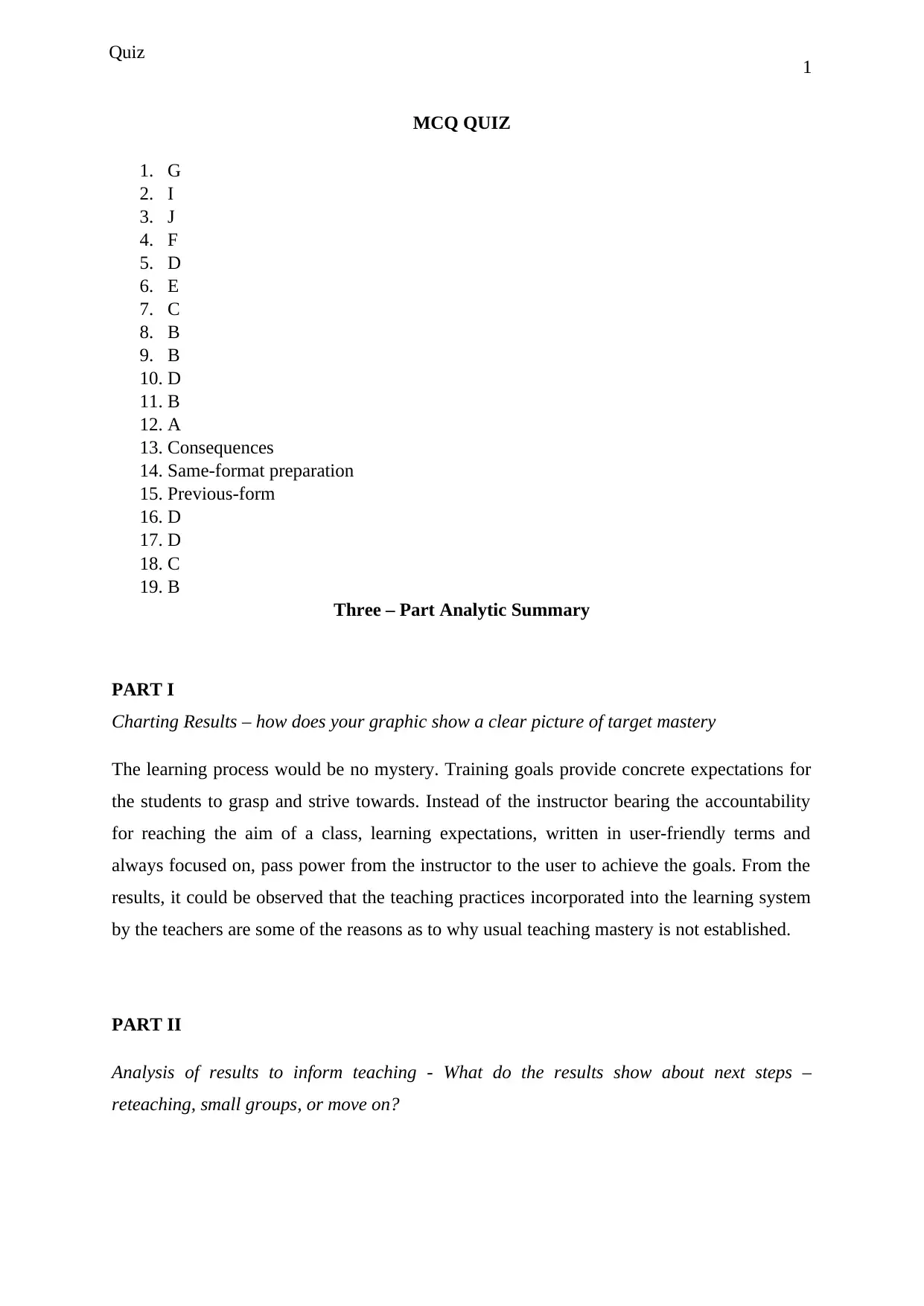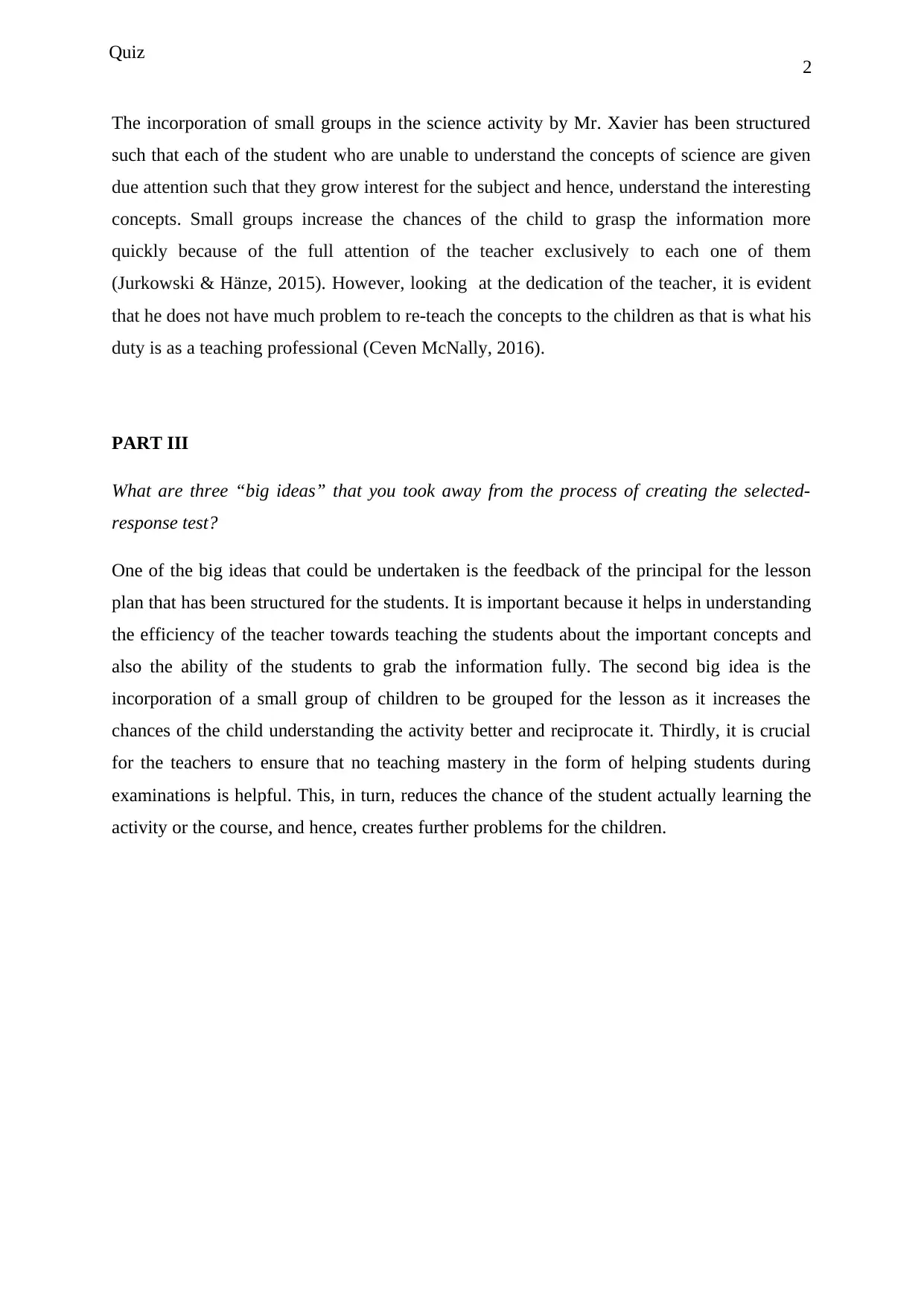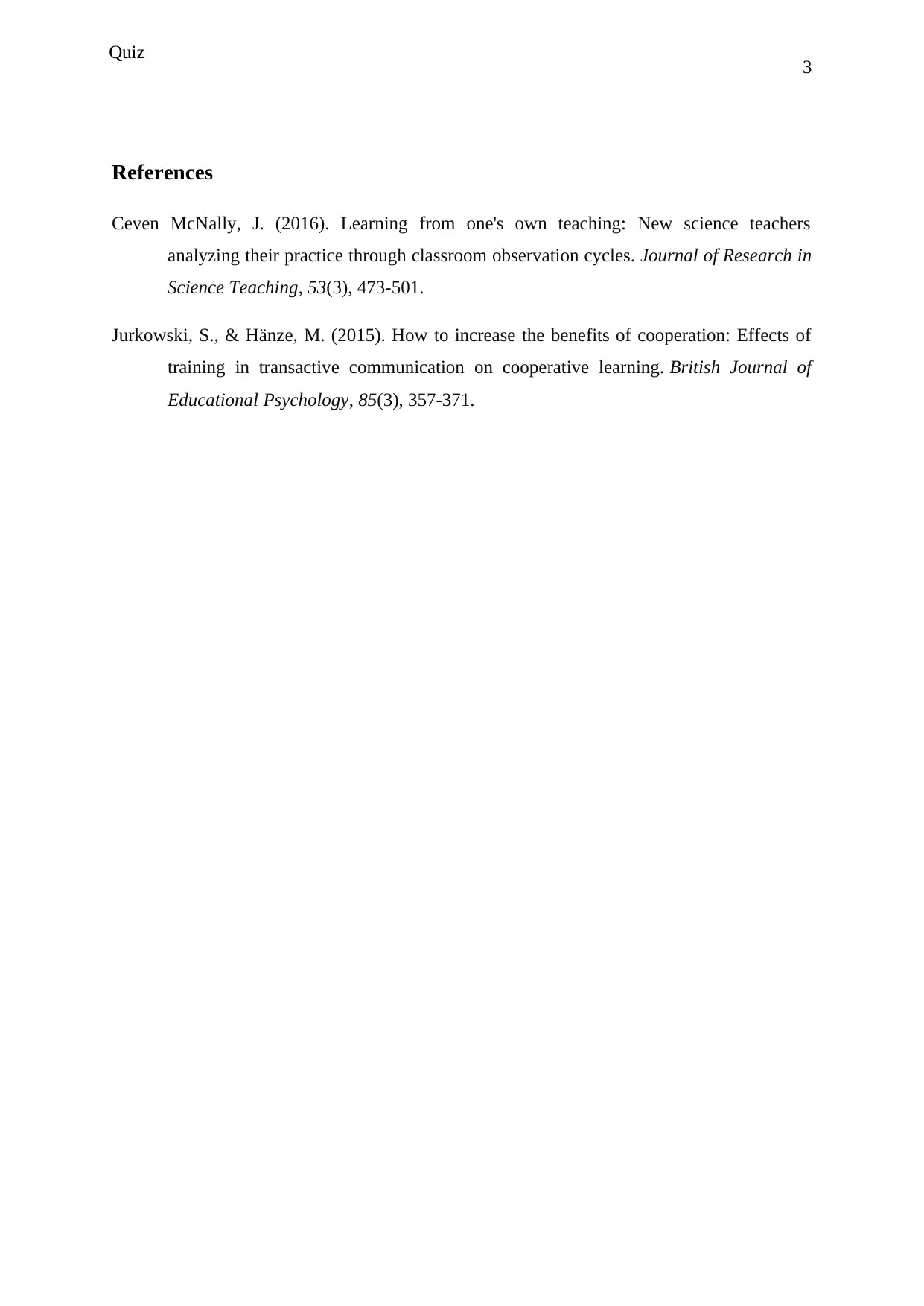Quiz Analysis: Test Prep, Teaching, Results, and Big Ideas
VerifiedAdded on 2022/08/24
|4
|568
|33
Quiz and Exam
AI Summary
This quiz analysis is divided into three parts, examining test preparation strategies, teaching methods, and ethical considerations. Part I charts results, providing a graphic representation of target mastery and the effectiveness of teaching practices. Part II analyzes the results to inform teaching decisions, such as the use of small groups for reteaching. Part III identifies three "big ideas" from the process of creating a selected-response test, including the importance of feedback, small group incorporation, and the avoidance of unethical teaching practices. The analysis references key concepts from the modules and uses APA citations, addressing the importance of educational defensibility and professional ethics in test preparation and teaching. The assignment includes a matching section and multiple-choice questions to assess understanding of these concepts.
1 out of 4











![[object Object]](/_next/static/media/star-bottom.7253800d.svg)